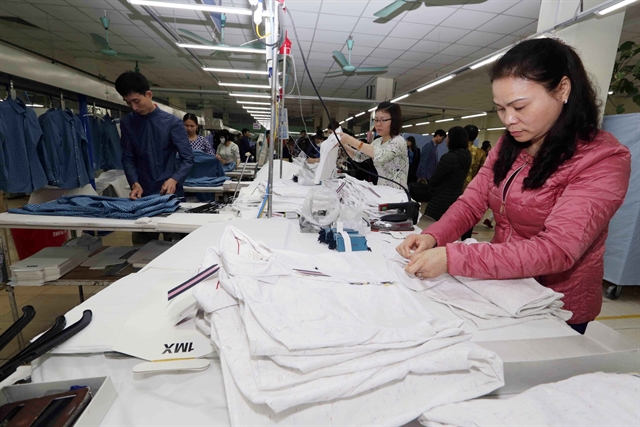EU Observer (22 May 2019)
The Dutch government must "make every effort" that new EU sanctions on human rights abusers will be named after Sergei Magnitsky, a late Russian activist, Dutch MPs have said.
The government must also "ensure that large-scale corruption ... falls within this sanctions law", the MPs said in a binding resolution passed by 83 votes to 67 on Tuesday (22 May).
The instructions come amid talks by member states' diplomats in Brussels on what has been provisionally named an "EU global human rights regime".
The new measures are to impose targeted visa bans and asset freezes on individual human-rights abusers worldwide.
The Dutch have informal ownership of the scheme because they introduced the original proposal in the EU Council in December.
The measures were inspired by so-called 'Magnitsky Acts' in the US and Canada and in Estonia, Latvia, Lithuania, and the UK.
They were named after Sergei Magnitsky, a Russian activist, who exposed a tax fraud by corrupt officials and mobsters with links to the Kremlin and who died in prison.
The Dutch dropped his name in favour of the more neutral title of a "global regime" so that Russia-friendly EU governments, such as those in Hungary or Italy, did not veto it to save Moscow's face.
But they should put it back because Magnitsky's name would make the EU measures a beacon of support for other activists, according to Sjoerd Sjoerdsma, the Dutch MP who drafted Tuesday's resolution in The Hague.
Magnitsky's "ultimate sacrifice" for rule of law "resonated with victims of human rights abuse in every corner of the globe," Sjoerdsma told EUobserver.
"The Dutch initiative has full backing by the UK, Germany, and France and it seems that all member states except for Hungary are on board," he said.
"Will the Hungarians really vote against human rights legislation because of the name? They know there will be a steep price to pay if they do," he added.
The measures should cover corruption because seizures of ill-gotten gains kept in European banks would act as a deterrent, he also said as EU diplomats fine-tuned details of its legal scope.
"Targeting those abusers' money abroad and their travel is one of the most effective ways of creating consequences," for their crimes, Sjoerdsma said.
Neither Hungary nor Italy have so far voiced grave objections to the scheme, an EU source told this website.
But Hungary, which has a track record of unilateral EU vetoes, has questioned whether Europe needed the new sanctions regime and might make trouble in the final stages of negotiations, the source said.
"That's when France and Germany might have to do some heavy lifting in order to make sure it gets through," the EU source added, echoing Sjoerdsma's words on pressuring Budapest with a "steep price".
No matter what happens in Brussels, parliaments in Nordic countries have also held talks on national 'Magnitsky Acts' after dirty money from the Russian fraud was laundered in the region's top banks.
And German MPs will hold a similar debate in the Bundestag's human rights committee in September, according to Norbert Roettgen, a senior deputy from the ruling centre-right Christian Democratic Union party.
"It is fundamentally correct and desirable to have such a law," he told German daily Der Tagesspiegel earlier this week.
The human rights committee chairman, liberal MP Gyde Jensen, added that "Germany should ... make a mark against the impunity of human rights violations".
The EU-level sanctions were "a very positive development", but they ought to be "flanked by measures in Germany", Manuel Sarrazin, a Green MP, said.
No comments yet.
- DOZENS OF U.S. MILITARY VEHICLES ARRIVE IN WESTERN IRAQ: SOURCE Iraq 22.05.2019
-
 VIỆT NAM-RUSSIA ECONOMIC, TRADE RELATIONS THRIVE
Asia - Pacific
22.05.2019
VIỆT NAM-RUSSIA ECONOMIC, TRADE RELATIONS THRIVE
Asia - Pacific
22.05.2019
- THE BRIEF: EUROPE OF NATIONS AND FREEDOM - A CLOSER LOOK Europe - EU 22.05.2019
- ARF ANNOUNCES UPCOMING RALLY The Caucasus and Turkish-Armenian Relations 22.05.2019
- ARMENIA TO HOST ARMENIAN-GEORGIAN BUSINESS FORUM The Caucasus and Turkish-Armenian Relations 22.05.2019
-
25.01.2016
THE ARMENIAN QUESTION - BASIC KNOWLEDGE AND DOCUMENTATION -
12.06.2024
THE TRUTH WILL OUT -
27.03.2023
RADİKAL ERMENİ UNSURLARCA GERÇEKLEŞTİRİLEN MEZALİMLER VE VANDALİZM -
17.03.2023
PATRIOTISM PERVERTED -
23.02.2023
MEN ARE LIKE THAT -
03.02.2023
BAKÜ-TİFLİS-CEYHAN BORU HATTININ YAŞANAN TARİHİ -
16.12.2022
INTERNATIONAL SCHOLARS ON THE EVENTS OF 1915 -
07.12.2022
FAKE PHOTOS AND THE ARMENIAN PROPAGANDA -
07.12.2022
ERMENİ PROPAGANDASI VE SAHTE RESİMLER -
01.01.2022
A Letter From Japan - Strategically Mum: The Silence of the Armenians -
01.01.2022
Japonya'dan Bir Mektup - Stratejik Suskunluk: Ermenilerin Sessizliği -
03.06.2020
Anastas Mikoyan: Confessions of an Armenian Bolshevik -
08.04.2020
Sovyet Sonrası Ukrayna’da Devlet, Toplum ve Siyaset - Değişen Dinamikler, Dönüşen Kimlikler -
12.06.2018
Ermeni Sorunuyla İlgili İngiliz Belgeleri (1912-1923) - British Documents on Armenian Question (1912-1923) -
02.12.2016
Turkish-Russian Academics: A Historical Study on the Caucasus -
01.07.2016
Gürcistan'daki Müslüman Topluluklar: Azınlık Hakları, Kimlik, Siyaset -
10.03.2016
Armenian Diaspora: Diaspora, State and the Imagination of the Republic of Armenia -
24.01.2016
ERMENİ SORUNU - TEMEL BİLGİ VE BELGELER (2. BASKI)
-
AVİM Conference Hall 24.01.2023
CONFERENCE TITLED “HUNGARY’S PERSPECTIVES ON THE TURKIC WORLD"









